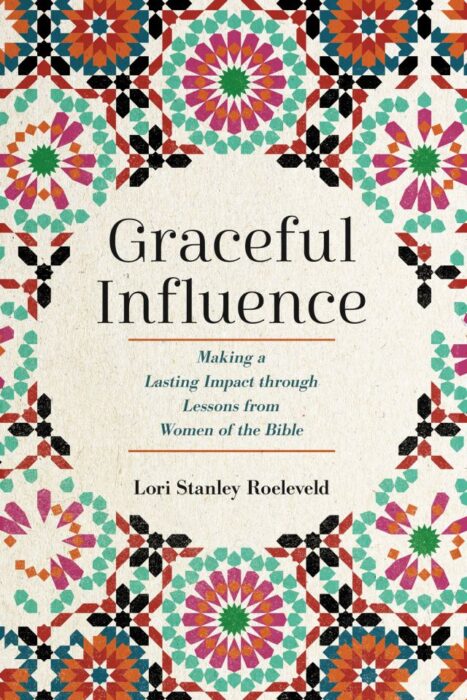 Joy Behar has done Christians a favor.
Joy Behar has done Christians a favor.
She’s provided a wonderful opportunity for us to consider how we might respond to someone who accuses us of being mentally ill for holding to certain beliefs and practices based on our faith.
Ms. Behar isn’t the first person to use that idea as a punchline. I’ve heard it from people in my life.
There are some who haven’t said it aloud who clearly think it, and it’s not out of the realm of possibility that our culture is moving in a direction where this is a greater line of thought society-wide. So, let’s consider ways to respond when in conversation with someone who thinks our faith is a joke or a form of mental instability.
I have a few thoughts.
First of all, just as context is important in Bible study, it’s also important when we have hard conversations like this one.  What do we know about the person we’re addressing?
What do we know about the person we’re addressing?
In Joy Behar’s case, she’s a comedian and media personality. It’s her job to get laughs and to be provocative, and she did her job on that day. She was going for the joke, but we can’t entirely dismiss her because she does impact culture.
Still, we don’t have to respond by attacking her personally because we don’t really know what goes on with her personally. I’m confident that Jesus loves Joy whether she receives that or not and He’s not any taller or shorter because of her comment. Our job is to be gracious, kind, truthful, and loving toward her even if she meant us harm.
Comments like this usually tell us more about the person saying them than they do about our faith. People can threaten our faith, but we don’t have to be threatened. Remain calm. Before you respond to the person in your life, consider their context. Settle yourself down. Remember their comment reflects on them, your response is what shapes the conversation.
Second, what feelings or worldview might motivate what this person says?
 It seems in this instance, Joy enjoys getting a laugh, clearly cares about appearing savvy, “above” praying to Jesus, and mistrustful of having a leader who may not share her views. I get that. I love getting laughs. I don’t like it when people think my faith is unsophisticated. I can resonate with being nervous about leadership who don’t share my worldview. So, we can reflect these things to the speaker.
It seems in this instance, Joy enjoys getting a laugh, clearly cares about appearing savvy, “above” praying to Jesus, and mistrustful of having a leader who may not share her views. I get that. I love getting laughs. I don’t like it when people think my faith is unsophisticated. I can resonate with being nervous about leadership who don’t share my worldview. So, we can reflect these things to the speaker.
As in, “Joy, I love getting laughs, too. Are you comfortable, though, using the faith of others as a punchline?” or “Joy, I usually appreciate your humor, but if you think our Vice-President is mentally ill, is that really funny?” or “Joy, sometimes people use humor in response to fear. It makes me nervous if someone in power over me doesn’t share my worldview. What is it about having a leader who prays that feels threatening to you?” Or, “Oprah hears from god, Joy, and I’m sure you wouldn’t consider her mentally ill, so what really concerns you about the idea that Mike Pence also hears from God?”
Rather than combat with antagonists, look for ways to converse. They’re seeking a fight, an uproar, a comeback, but we don’t have to allow those opposed to us to set the agenda for the public conversation. Jesus never did. As Christians, we need to take the “fight” to a spiritual plane (through spiritual warfare) while switching the earthly conversation to a heart-level and insightful form of outreach and reasonable dialog. (read the gospels and watch Jesus do this all the time)
Third, we can use the opportunity to prayerfully ask ourselves some hard questions.
What do I mean when I say I hear from God?
While I’m shouting about and defending prayer, when was the last time I actually spent more than five minutes praying?
How do I speak about people with worldviews that differ from mine? Do I feel it’s okay to mock or deride those who differ from me?
What does my response to what this person is saying say about me?
Why do I care what some talk show hosts believe about my faith practice?
Why do I care about looking unsophisticated? Why do I care if someone thinks I’m mentally ill?
And while we’re at it, how do we distinguish within the Body of Christ, between those who hear from Jesus and those who are “hearing voices?” I know I had several guys at my Christian college who told me God spoke to them and said we should date. I don’t know who they were hearing, but it wasn’t Jesus. So, how do we discern?
 God is at work through all kinds of avenues, even network media. Sometimes He provokes His people to get us to think, to study, and to live up to our calling. The battle is real, and it begins at home.
God is at work through all kinds of avenues, even network media. Sometimes He provokes His people to get us to think, to study, and to live up to our calling. The battle is real, and it begins at home.
Fourth, be grateful to those who antagonize you.
So, I’m glad Joy Behar went for the laugh. She provoked a worthwhile conversation. It’s crazy how easy it is to become lazy about my faith. Moments like this keep me sharp. It’s good to exercise this muscle. It draws me closer to Jesus and makes me more fruitful and effective for Him.
The Bible says it adds to my reward in heaven when people insult me or mock me because of Jesus and the command is to rejoice. “‘Blessed are you when others revile you and persecute you and utter all kinds of evil against you falsely on my account. Rejoice and be glad, for your reward is great in heaven, for so they persecuted the prophets who were before you.'” Matthew 5:11-12 (ESV)
Express gratitude to the people in your life who antagonize you because of your faith. Tell them how it benefits you, keeps you sharp, drives you to prayer and to study and to action.
Finally, be about the work of the kingdom and not so much about chasing controversies. Christians operate on a different  matrix.
matrix.
It’s harder to poke fun at people who are effectively and fruitfully ministering to the hurting and the marginalized of the world, serving the poor, caring for the sick, and interceding for protection for those in the way of harm. Let’s be those people.
When the enemy started rumors about Nehemiah and the people of God, this was Nehemiah’s response, “And I sent messengers to them, saying, ‘I am doing a great work and I cannot come down. Why should the work stop while I leave it and come down to you?’” (Nehemiah 6:3 ESV)
Please, add to this conversation. How can you use this opportunity to learn, to grow, and to reach out to others?
Joy Behar has done Christians a Huge Favor – Thank you, Joy! https://t.co/335WPBP3zx responding to #JoyBehar #MikePence #Jesus
— Lori Roeleveld (@lorisroeleveld) February 17, 2018











The Conversation
Great advice, Lori. More and more, we will be called upon to be as wise as serpents and as harmless as doves. I have been thinking much lately about just how and when I should speak out my faith. I need the kind of wisdom and love that only comes when the Holy Spirit is allowed access to my heart. I pray we will all seek that kind of wisdom.
Amen, Ginny. Great wisdom.
We should expect attacks from all directions. In today’s society, those of us who believe in God, in Yeshua the Messiah and in the Holy Spirit are food for mockers and haters. satan (I don’t capitalize his name, he doesn’t deserve even that much respect) has cranked it up to break and destroy God’s people.
Put on the armor of God every day. Read/Study the Bible so we can respond to those who attempt to cut us off at the knees. You’re right again, Lori: we aren’t responsible for what someone else says; we are responsible for how we respond to them.
Wise words! You have been touched by God to aid the rest of us through this minefield we call Life. I greatly appreciate your incredible insight. Thank you!!
Jann – good word about the armor of God. Absolutely.
Always appreciate your perspective, Lori. I’ve been pondering and wrestling for a long time with what my response should be when someone on social media says something provocative. I’d love to develop a personal matrix or philosophy for discerning 1) whether a response is needed and 2) what form that response should be.
I want to feel settled in my choice of action, knowing the biblical basis for it and confident in my ability to hear specifics from the Holy Spirit about individual situations. That is, I don’t just want a formula that I apply across the board — that fails too many times. But some form of checklist is often helpful for me, because it’s easy for me to jump to conclusions unless I take the time to think things through in an orderly way.
Your thoughts are helpful in pointing out various angles on these issues, and I’m thankful for that!
I love your idea of a check list, Teddi. It’s a decision I weigh every day with the blog. I’ll be praying about that! While I feel as though attention off just feeds the fire, it’s also true that statements like this have an impact on culture at large. When we don’t respond at all, there is no voice for Christ for those who don’t know Him. Keep praying!
I appreciate the reminder to slow down and think before reacting in anger and fear. I tend to be a person who doesn’t “think on her feet” well. Meaning it takes a day or more for my subconscious to process (what I see as) a verbal attack. I generally just sit there in shock not knowing what to do. I hope that after reading this that I can think through possible responses to such an event so I can engage in conversation and perhaps plant a seed in the other person’s heart.
Cheryl, most of us need that time and many who think they don’t need it, also do! I do feel it’s good to reflect and work out responses even in the aftermath. The enemy doesn’t get more creative. Tends to use the same tactic over and over.
Just for fun: I once owned a two volume 1901 dictionary. In that dictionary, the word sophisticated meant pretentious. So maybe it’s good that our faith is unsophisticated.
Amen, Arlene. I’ll keep that in mind.
Thanks for contextualizing our responses to those who mock our faith. I didn’t hear this particular comment, but have read similar comments before. They leave me so sad, especially when they mock Jesus, not just his followers (who actually can be quite odd at times :)). I appreciate your call to look at this as an opportunity to show love, and not “take the bait”.
You go girl, love your blog